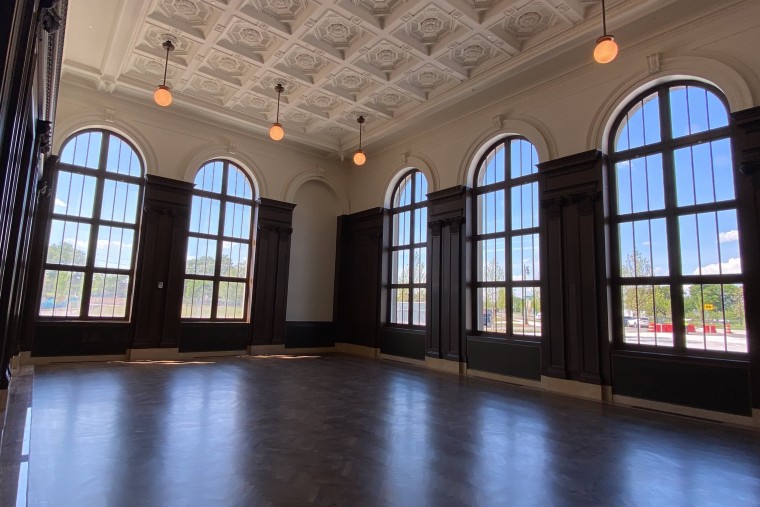Ford Motor Company, known for its innovation and ingenuity in the automotive industry, recently revealed its latest venture that steps out of assembling lines and delves into tech space. The 104-year-old Detroit-based company has breathed new life into the city’s century-old train station, transforming it into a futuristic tech campus. The project, shrouded in utter brilliance, was realized for a whopping $950 million, marking a significant development for Detroit’s urban renewal narrative.
For decades, Michigan Central Station was a symbol of Detroit’s decline, standing like a desolate sentinel over a city that was once a high-altitude hub of transportation and manufacturing. However, today, the station stands adorned with technology and innovation, every nook and corner speaking volumes about Ford’s commitment to weave its future into the city’s very fabric.
The colossal restoration project undertook preserving the station’s architectural legacy, while equipping it with cutting-edge technologies. The building’s Beaux-Arts architectural style predates World War I, and its preservation showcases the marriage of classic elegance with technological advancements. The tech campus houses state-of-the-art research centers, workspaces, and laboratories for Ford’s team and its partners.
This new tech hub aims to create an innovation ecosystem where Ford’s brainiac team and experts from other tech giants could collaborate, ideate, and create breakthroughs in the automotive sphere. The campus is envisaged as a knowledge hub specifically designed to usher in the future of mobility, crystalizing ideas centered around autonomous vehicles, connectivity, electrification, and smarter interfaces.
Interestingly, Ford’s move is not designed to isolate but to involve the community. Featuring public spaces, retail outlets, restaurants, and residential apartments, the campus aims to emerge as a mixed-use development. Visitors can explore the rich history of the station and Detroit, while at the same time getting a glimpse of the promising future that Ford is shaping.
At the heart of the campus is a majestic central atrium, replete with natural light and restored to its grandeur. Then there are ubiquitous connectivity features, workspaces equipped with smart furniture, and a network of sensors connected to a ‘building nervous system, ‘ promising efficiency and positivity in its operations.
To truly underline its ‘Green’ commitment, Ford ensured this project was a testament to its environmental responsibility. The heating and cooling system relies on geothermal energy, while the glass used in the building is efficient in trapping heat, thus minimizing energy use. Solar panels have been strategically placed around the site, providing most of the building’s energy needs.
In essence, the restoration of the Michigan Central Station into a tech epicenter marks a new chapter in Ford’s legacy. It exemplifies a scenario where the past and the future intertwine harmoniously, giving rise to a sustainable, technology-rich future. The $950 million venture, high on innovation and low on environmental impact, is not just a giant leap for Ford, but also a significant stride for Detroit, pushing the city further into the forefront of technological transformation.




